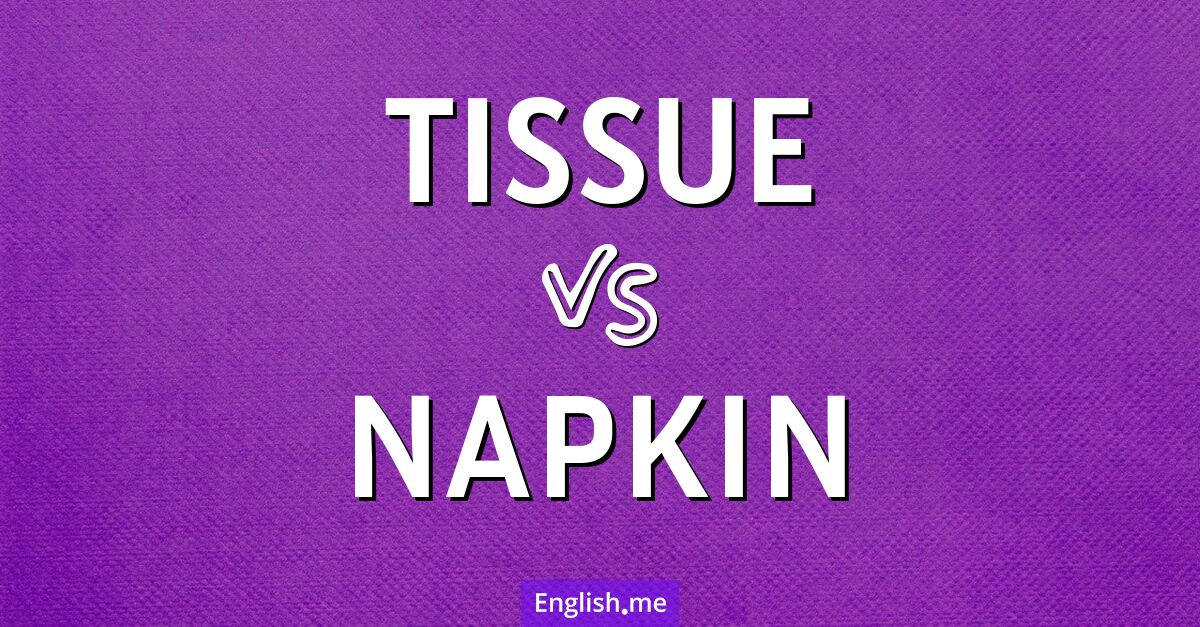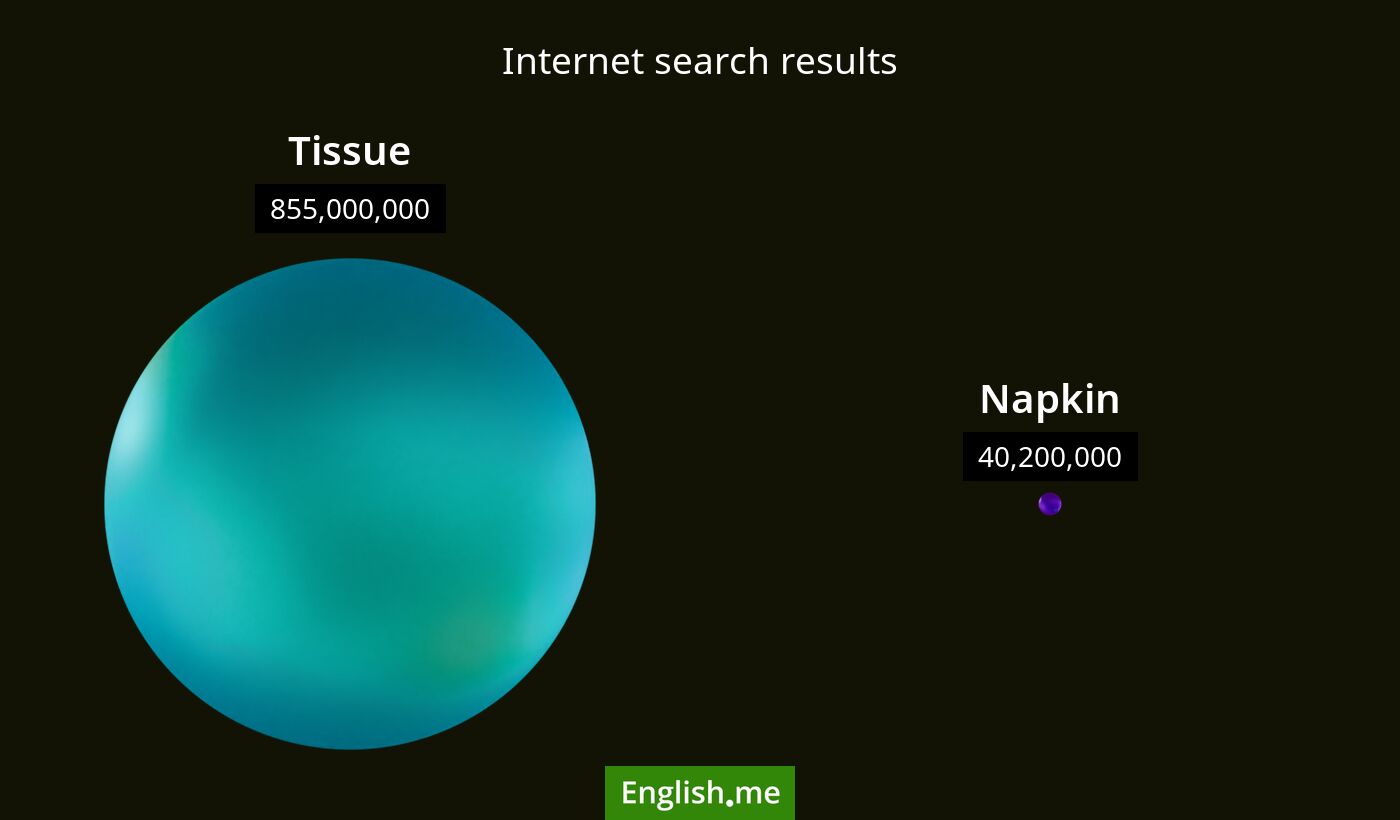"Tissue" vs. "napkin": what's the difference?
Reviewed and edited by  Anwar Kareem 11/11/2024, 14:30
Anwar Kareem 11/11/2024, 14:30
English.me team member

 What is similar?
What is similar?
Both "tissue" and "napkin" refer to products commonly used for hygiene purposes, can be used to clean or wipe surfaces, and are usually made of paper. They are often disposable and used in everyday life, particularly in settings involving food and cleanliness.
 What is different?
What is different?
A "tissue" is generally softer and used for personal hygiene, like wiping the face or blowing the nose. A "napkin" is typically thicker than tissue, used at dining tables for wiping hands and mouth. Napkins can also be made from cloth.
 Which one is more common?
Which one is more common?

 Examples of usage
Examples of usage
Tissue- She pulled a tissue from the box to wipe her tears.
- Can you pass me a tissue? I've spilled some water.
- He always carries a pack of tissues in his bag.
- He placed a napkin on his lap before starting his meal.
- The waiter brought a fresh napkin with the utensils.
- She quickly wiped her hands with a napkin after finishing the food.

 English
English español
español française
française italiano
italiano deutsche
deutsche 日本語
日本語 polski
polski česky
česky svenska
svenska Türkçe
Türkçe Nederlands
Nederlands